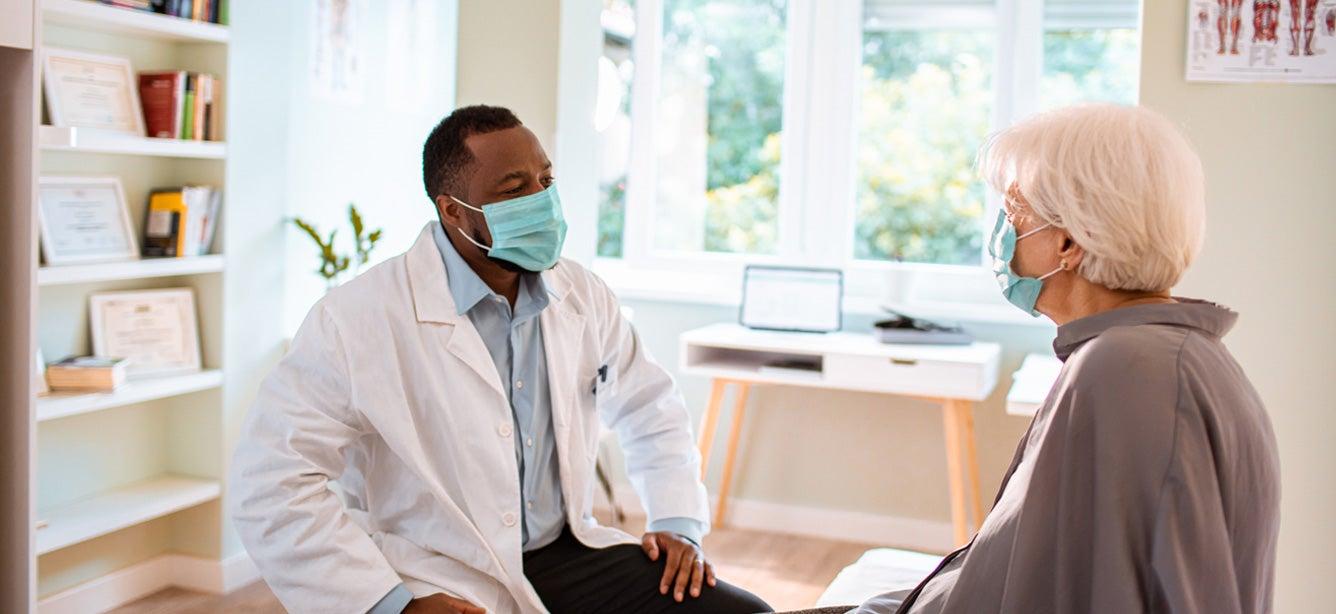Why You Should Partner with a Federally Qualified Health Center for Evidence-Based Programs
10 min read

Federally Qualified Health Centers (FQHCs) provide preventive care, including health, oral, and mental health/substance abuse services. They provide necessary care to the medically underserved, including the uninsured and those living below the poverty level.
FQHCs receive a special designation from the Bureau of Primary Health Care and the Centers for Medicare and Medicaid Services that allows them to get reimbursed for care provided to medically underserved populations (MUPs) or in medically underserved areas (MUAs), such as rural areas and inner cities. FQHCs are primarily funded by the Health Resources and Services Administration (HRSA) under Section 330 of the Public Health Service (PHS).
Regulatory changes to Medicare and Medicaid policies, authorized by the Affordable Care Act, have highlighted the soaring health care expenditures to treat the growing population of older adults. There has been a particular focus on how the U.S. health care system can begin to address the complex needs of dual-eligible Medicare beneficiaries. This population is more likely to have two or more chronic conditions than younger age groups, and it has the highest per capita spent. FQHCs are in a prime position to address the needs of dual-eligible older adults, and they must establish strategic partnerships to be able to do so.
Find an FQHC
You can locate FQHCs in your state by visiting HRSA’s Find a Health Center website. Primary Care Associations (PCAs) receive funding from HRSA’s Bureau of Primary Health Care to provide training and technical assistance to FQHCs across the country to assure quality performance. Each state has a Primary Care Association that supports the health centers in their service area. They are a good source for connecting with FQHCs throughout your state.
Why Partner with FQHCs?
FQHCs are considered “safety net providers,” responsible for getting care to the nation’s most vulnerable populations. Since older adults are among the nation’s vulnerable populations affected by chronic disease and frequent falls, many FQHCs are seeking opportunities to increase the number of older adults they serve and provide them with critical self-management services. Doing so helps FQHCs meet the Health Services and Resources Administration’s (HRSA’s) requirements to increase the volume of services provided to high-risk older adults, enabling them to sustain their 330 grant funding.
Evidence-based programs for Chronic Disease Self-Management Education (CDSME), falls prevention, and other topics have been shown to activate patients so that they are more involved in their care, increase their self-efficacy, and improve a number of measures related to health status, health care, and costs. Because many evidence-based programs are peer led, provide a supportive environment to facilitate change, and empower patients to take charge of their health, they are well suited for helping to improve the health status of vulnerable populations. They can be particularly useful in helping FQHCs improve the health of older adults who are disproportionately affected by poor health outcomes.
FQHCs are designed to include patient involvement, patient education, and self-management support. As a safety net provider, FQHCs often have special relationships with their patients to address barriers to care, including lack of transportation or problems in navigating health systems to access needed services. FQHCs play an important role in encouraging patients to keep appointments, attend health education activities, and self-manage their medical conditions. These dynamics can make FQHCs good candidates for offering or making referrals to evidence-based workshops.
FQHCs receive reimbursement incentives by becoming Patient-Centered Medical Homes (PCMHs). When they become recognized or accredited as a PCMH, they must have an effective Medicare/Medicaid billing infrastructure to provide sustainable services. Therefore, FQHCs are primed to serve as a unique billing partner with evidence-based program providers who want to establish a reimbursement strategy to sustain CDSME programs.
What’s in it for FQHCs?
FQHCs are required, as part of their HRSA 330 grant funding, to increase the number of consumers they serve each year, including high-risk older adults. If a health center experiences a decrease in its service population, it can lose some or all of its grant funding. To prevent this, health centers must submit utilization data to HRSA each year, including the number of consumers served, the average number of times they received services, and their age distribution. Health centers that increase the volume of services provided to high-risk older adults are looked upon favorably in HRSA’s decisions to sustain or increase their 330 grant funding.
FQHCs also must increase the volume of insured consumers served by their center. High-risk older adults often have Medicare and Medicaid benefits that will allow for full compensation for health services rendered, including evidence-based programs. For example, older adults who have two or more chronic conditions can be eligible for CDSME programs and have their participation reimbursed. As such, they are a potentially profitable target population that supports the recruitment and health care requirements of HRSA and contributes to the overall financial viability of the health center.
The Patient Protection and Affordable Care Act of 2010 encourages state Medicaid programs to develop medical homes and implement provider incentive payment programs for care to patients with chronic diseases. As a result, many FQHCs are becoming Patient-Centered Medical Homes (PCMHs), a primary care, team-based approach to meeting a patient’s health care needs. FQHCs are focusing on a PCMH approach with care that is:
- Patient-centered
- Comprehensive
- Coordinated
- Accessible
- Committed to quality and safety
To achieve these goals, FQHCs are looking for ways to:
- Increase the volume of patients seen in the PCMH that receive care coordination
- Provide quality care at lower costs to patients, resulting in improved management of chronic conditions
- Improve patient activation in chronic disease self-management behaviors
FQHCs receive PCMH accreditation from organizations such as the National Committee for Quality Assurance (NCQA). They also can receive bonus payments from the Centers for Medicare and Medicaid Services and the Health Resources Services Administration for improving the quality and coordination of patient care leading to improved health outcomes. NCQA accreditation includes achieving the 6 PCMH standards:
- PCMH 1 Access and Continuity
- PCMH 2 Identify and Manage Patient Populations
- PCMH 3 Plan and Manage Care
- PCMH 4 Provide Self-Care Support and Community Resources
- PCMH 5 Track and Coordinate Care
- PCMH 6 Measure and Improve Performance
Many evidence-based programs are proven effective in achieving several patient outcomes consistent with NCQA PCMH accreditation standards and Affordable Care Act legislation.



